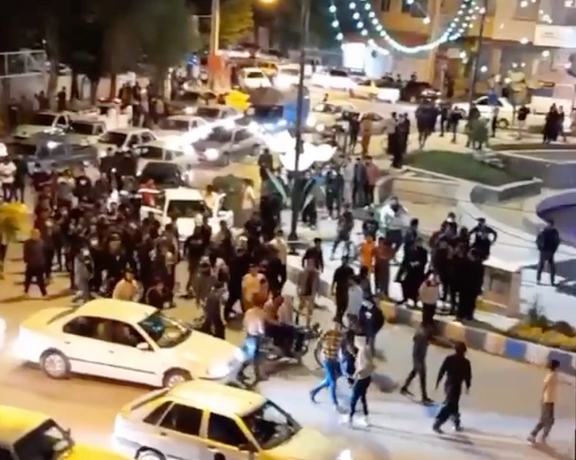Protests In Iran Were Expected, Sociologists Say

As anti-government protests triggered by rising prices sweep across Iran, state media and officials are in denial, but many observers were expecting the unrest.

As anti-government protests triggered by rising prices sweep across Iran, state media and officials are in denial, but many observers were expecting the unrest.
In the meantime, two sociologists explained the underlying reasons for the protests in interviews with Iran International Television.
Majid Mohammadi, an exiled sociologist and commentator, told the IITV that "There is a war in Iran between the government and the people over their share of the country's national resources. The government believes that it owns the national wealth while the nation should be kept in poverty. Men in government believe in "resistance economy" for the nation while they live an affluent lifestyle as they continue their expansionist policies abroad."
Mohammadi went on to say that the rulers are actively involved in sending their money and children to other countries while economic pressure and lack of freedoms force some ordinary people to become refugees. On the other hand, others are not willing to leave the country's resources to the government.
He added that during the past 43 years, the government has usurped many of the people's rights and has monopolized the ownership of the media and banned freedom of expression and association. In smaller towns where people have little access to the country's wealth, people are more determined to prevent the government's monopoly on resources.
Mohammadi said that there are three characteristic elements in smaller towns where protests are more intense. The first is poverty, misery and unemployment. The government in its own estimates considers 90 percent of the population "poor". They live in small towns while the other 10 percent live in big cities such as Tehran, Mashhad, Esfahan and Shiraz.
"The second characteristic is that people in small towns have distanced themselves from political Islam. In their slogans during protests in the past four years, there is no trace of political Islam," Mohammadi said, adding that "the third characteristic of small towns is that the people who take to the streets have cut off their ties with the clerics and see them as their enemies. They do not want the Shiite clerics to have any role in the government in Iran."
Mohammadi said that chanting slogans in favor of Reza Shah Pahlavi, the founder of the Pahlavi dynasty, mainly marks the protesters' opposition to the ruling clerics.
Meanwhile, Hossein Ghazian, another Iranian sociologist told Iran International TV that although the protests are taking place in the form of a reaction to rising prices, Iranian society has been expecting such a development. Many had earlier likened Iran to a gunpowder keg. Some even said that Iranian society was sitting on a gasoline tank short of a spark to ignite it. "However, I like to say that we have many social and political fault lines that might lead to a small or a bigger jolt at any moment, as saw in nationwide protests in 2017, 2018 and 2019," Ghazian said.
The sociologist added that the dynamics of these jolts are affected by a few factors: First, it is important how widespread they are and how many locations they affect. The second factor is for how long every jolt lasts. The third factor is the magnitude or the number of individuals who join the protests. The nature of demands is also important – whether protesters for example have sectoral demands or ask for wholesale change.
Ghazian said, it is still too early to pass judgement on the current protests and to determine in which direction they might move. He further said that all the major protests since 2017 have been reactions to government actions. No one or group from abroad or from within the country has called for protests.
However, Ghazian noted that "There is accumulated dissatisfaction in society that gives way to anger. This anger might occur in various places and at various times without necessarily targeting the true cause of the anger."